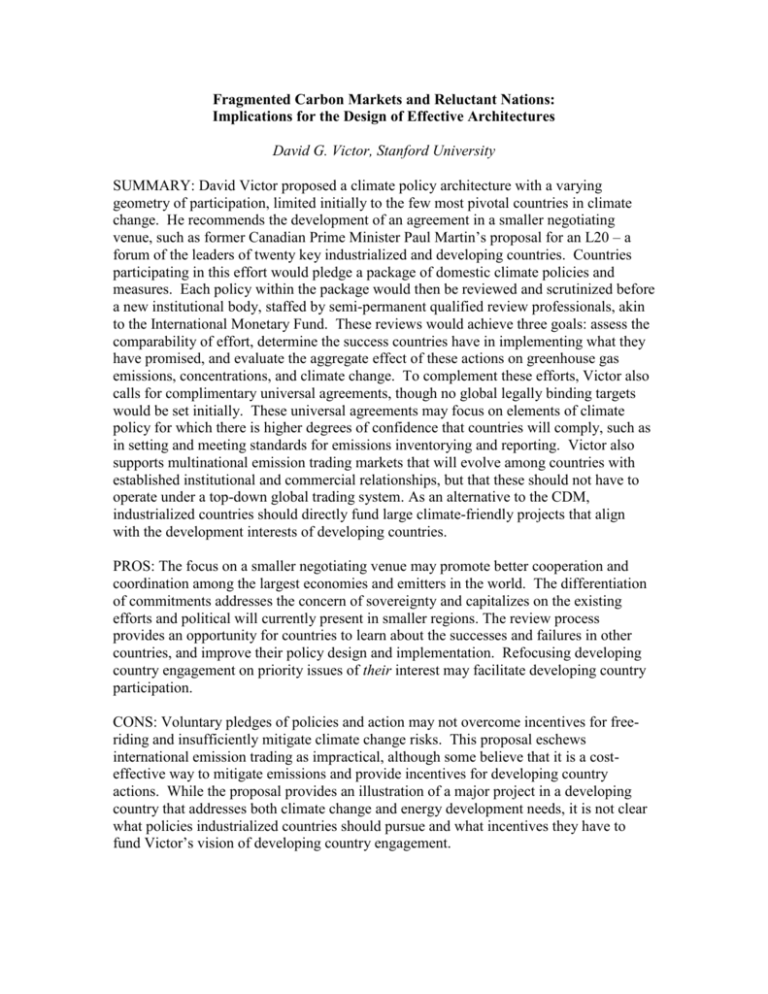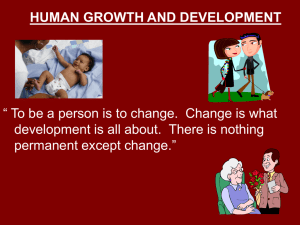Victor Synopsis - Belfer Center for Science and International Affairs
advertisement

Fragmented Carbon Markets and Reluctant Nations: Implications for the Design of Effective Architectures David G. Victor, Stanford University SUMMARY: David Victor proposed a climate policy architecture with a varying geometry of participation, limited initially to the few most pivotal countries in climate change. He recommends the development of an agreement in a smaller negotiating venue, such as former Canadian Prime Minister Paul Martin’s proposal for an L20 – a forum of the leaders of twenty key industrialized and developing countries. Countries participating in this effort would pledge a package of domestic climate policies and measures. Each policy within the package would then be reviewed and scrutinized before a new institutional body, staffed by semi-permanent qualified review professionals, akin to the International Monetary Fund. These reviews would achieve three goals: assess the comparability of effort, determine the success countries have in implementing what they have promised, and evaluate the aggregate effect of these actions on greenhouse gas emissions, concentrations, and climate change. To complement these efforts, Victor also calls for complimentary universal agreements, though no global legally binding targets would be set initially. These universal agreements may focus on elements of climate policy for which there is higher degrees of confidence that countries will comply, such as in setting and meeting standards for emissions inventorying and reporting. Victor also supports multinational emission trading markets that will evolve among countries with established institutional and commercial relationships, but that these should not have to operate under a top-down global trading system. As an alternative to the CDM, industrialized countries should directly fund large climate-friendly projects that align with the development interests of developing countries. PROS: The focus on a smaller negotiating venue may promote better cooperation and coordination among the largest economies and emitters in the world. The differentiation of commitments addresses the concern of sovereignty and capitalizes on the existing efforts and political will currently present in smaller regions. The review process provides an opportunity for countries to learn about the successes and failures in other countries, and improve their policy design and implementation. Refocusing developing country engagement on priority issues of their interest may facilitate developing country participation. CONS: Voluntary pledges of policies and action may not overcome incentives for freeriding and insufficiently mitigate climate change risks. This proposal eschews international emission trading as impractical, although some believe that it is a costeffective way to mitigate emissions and provide incentives for developing country actions. While the proposal provides an illustration of a major project in a developing country that addresses both climate change and energy development needs, it is not clear what policies industrialized countries should pursue and what incentives they have to fund Victor’s vision of developing country engagement.











